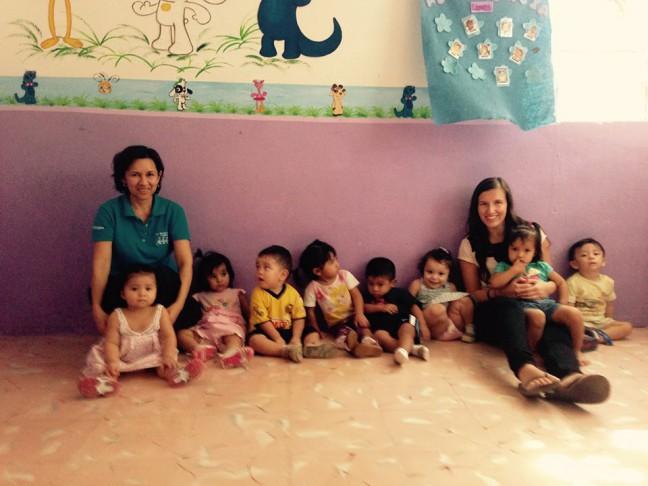For University of Wisconsin sophomore Kristen Kelly, a recent volunteering trip abroad allowed her to help those in need and immerse herself in a new culture, reflecting common benefits of volunteering for college students.
Kelly went to Mexico over winter break through the UW student organization, Alternative Breaks. She spent two weeks helping out a local daycare.
Alternative Breaks, a student volunteering organization run by the Wisconsin Union, is one of numerous organizations at UW that bridge the gap between university and community, even if it lies in a different country.
Because of UW’s engagement with local, regional and global communities, the Carnegie Foundation for the Advancement of Teaching recently awarded it the 2015 community engagement classification. According to a UW statement, the university originally sought classification in 2008 and aimed for renewal for 2015.
According to the Carnegie Foundation’s website, institutions interested in receiving the award were invited to apply. Doing so required each institution to send in their own respective materials.
Jeffrey Russell, the vice provost for Lifelong Learning and dean of continuing studies, was one of the university officials responsible for completing the submission to be considered for the classification, which required him to look to the ways in which UW engages with Madison, the Midwest region and the rest of the world. To him, the Morgridge Center for Public Service, in charge of organizing Badger Volunteers, set UW apart when applying for the classification.
“The banner of having well over 700 students engaged in community-based projects is very significant,” Russell said. “The big thing is that it shows and demonstrates that we’re committed to engaging the community and working with the community to explore and solve problems.”
According to Badger Volunteers coordinator Kari Temkin, the large organization requires participating students to gather in teams and volunteer at the same non-profit or governmental agency each week during the semester. Volunteering in such organizations helps students live out the Wisconsin Idea, Temkin said.
“We take our students and put them into the community outside of our campus to utilize their skill sets and their passion, to impact the needs of our community,” Temkin said.
Steven Cramer, vice provost for Teaching and Learning at UW, sees the university moving toward offering an education involving more active learning, such as the practical application of a university education in a volunteering setting, for instance.
Community participation, in which a student can apply his or her knowledge to the real world before graduating, goes hand in hand with good citizenship and embodies the Wisconsin Idea, said Cramer.
“Opportunities for our students to apply what they are learning in class continue to grow at UW-Madison,” said Cramer. “The Wisconsin Experience should be about, and is about, knowledge engagement and participation in your learning.”
For Kelly, it was easy to make the decision to donate her winter vacation time as she said she’s always valued volunteering.
“[Volunteering] is about broadening your horizons and getting along with people who aren’t the same as you,” Kelly said.














